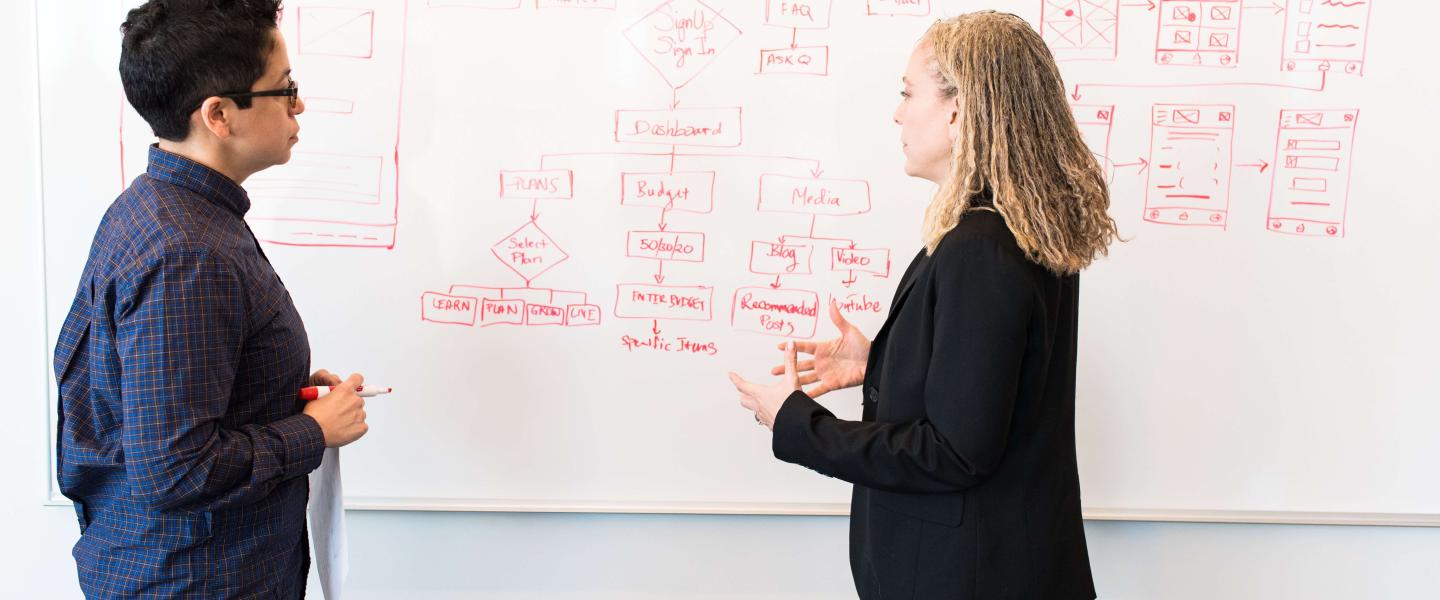Many entrepreneurship promotion programmes overlook key barriers to women's enterprise. Mary Johnstone-Louis offers a framework for addressing the underlying problem.
Support for women’s entrepreneurship is on the rise. At least half of the 50 largest companies in the United States and 40 of the world’s largest firms run corporate social responsibility (CSR) programmes aimed at helping women entrepreneurs, and those numbers are rapidly increasing.
While these programmes are innovative and important, they tend to fall short in one key respect: Most do not address a deep-seated barrier to women's business, says Mary Johnstone-Louis, Senior Research Fellow at the University of Oxford’s Saïd Business School and Programme Director of the Ownership Project at Oxford Saïd. As a result, many women entrepreneurs find it difficult to access the funding, advising and networking resources they need to launch or grow their businesses.
Here, Johnstone-Louis explains the challenges that women entrepreneurs face in both developed and developing countries, and explains how corporate programmes can do a better job of addressing them.
Q. What is a key 'invisible barrier' that women entrepreneurs have to face?
Our society labours under an archaic but very sticky definition of what ‘work’ is, which is that work is something that creates a good or service that can be exchanged in a market context for money. This definition excludes an enormous amount of human activity that is incredibly important; scholars call this 'unpaid and care work'. This is not limited to the familiar issue of mothers caring for young children; it includes caring for the less able and the elderly, the latter representing a rapidly increasing demographic. These activities are not considered ‘work’ in the same way that, for example, a factory or office job would be considered work. Hence they remain invisible, and caregivers are marginalised relative to paid workers. While women still conduct the vast majority of unpaid care work globally, this marginalisation applies regardless of the gender of the caregiver.


Q. Why is this exclusion problematic?
It creates a false compartmentalisation in which individuals find themselves in formal work environments that do not acknowledge or support that they have unpaid or care work activities that also make up the tapestry of things they do. This is particularly problematic when a CSR programme is trying to work with women entrepreneurs across value chains, at scale, across the globe.

Q. You have developed a ‘four Rs framework’ for addressing this issue. Can you explain how this framework can help corporations create better entrepreneurship promotion programs?
The framework was developed by Diane Elson. I bring it into a corporate context, with a focus on women in global supply chains. The first R is that you recognise that unpaid and care work does exists. This means that, if you are developing a programme to support entrepreneurship, you consider the time of day of training events. You consider whether there needs to be childcare available. You think about where you are advertising the programme.
The second R is reducing unpaid and care work. One of the ways we can help make care less burdensome is by leveraging technology. The United Nations has pointed out that women and girls spend millions of hours gathering fuel and cooking on inefficient cookstoves, as well as fetching water. Technology can go part – though not all – of the way to reducing this substantial time burden. I have also seen many examples of using technology to make training more accessible.
The third R is redistributing the work. This has a lot to do with modelling and setting a tone in an organization – normalising parental leave or flexible work schedules, for example. Here policy is also a powerful lever, and corporations can show leadership in this area.
The fourth R is representing unpaid and care work in formal spheres. This means that, when you are designing a program that has any kind of gendered component, you consider unpaid and care work. The lesson is that when companies build strategy on an issue of social concern, they do so with awareness to avoid reinforcing historical tendencies.
Mary Johnstone-Louis is interested in how firms build strategy around areas of public good. As Senior Research Fellow at Oxford Saïd and Programme Director of the Ownership Project, her current focus is on how ownership influences firm behaviour, with a particular emphasis on family ownership, sustainability and social impact. She is Co-Director of the Oxford Programme on Responsible Ownership (Oxford PRO), a course for current and future owners of large multi-generational businesses. She has written extensively on gender and business.




